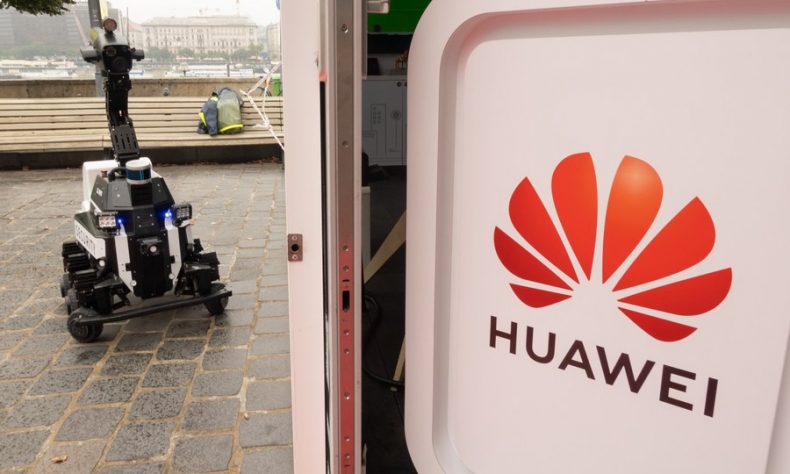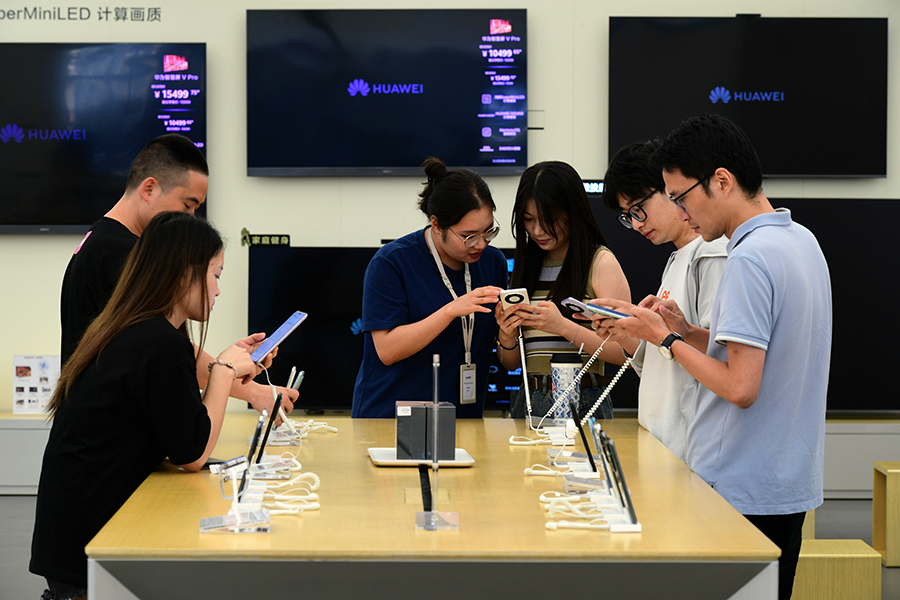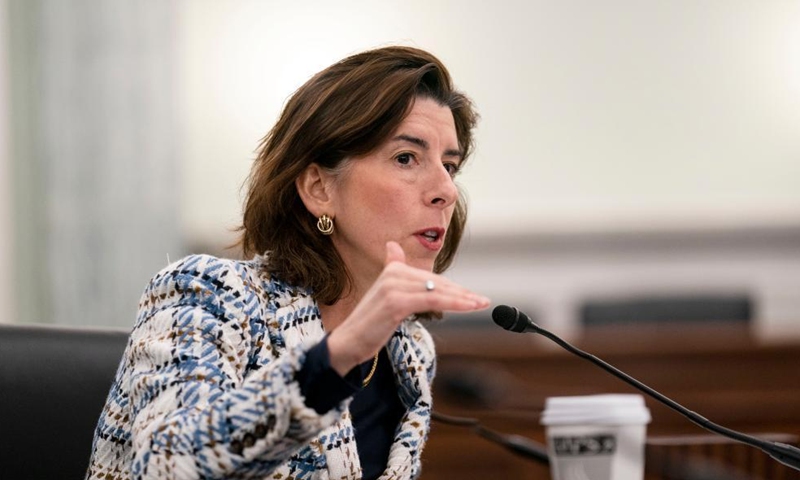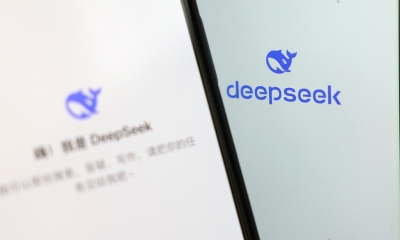U.S. Secretary of Commerce Going After Huawei

Even if we admit that the two presidents made progress in areas such as people-to-people exchanges, the reality is Biden is a product of the Cold War.
U.S. Secretary of Commerce Gia Raimondo made a high-profile trip to China a few months ago. There, she talked up the “enormous” Chinese market and the incredible “appetite among U.S. business to continue to do business” there. While there were no significant deals unveiled during her visit, it did leave the impression that the White House wanted to continue open dialogue and continue doing business with China.
Now, Raimondo is singing a different song. On December 11, in an interview with Bloomberg News, Raimondo said that she was prepared to crack down on Huawei. And what did the Chinese-based telecommunications giant do to anger her? It revealed a semiconductor chip-making breakthrough in its latest smartphone that Washington politicians are convinced could only have happened with cooperation from a U.S.-based corporation.
As a result, the House Foreign Relations Committee quickly determined that some kind of “export control violation” had taken place. Put more bluntly, the committee believes that a U.S. company ignored U.S. government efforts to prevent China from receiving the most sophisticated chips that can be used to produce cutting-edge smartphones and other communication devices.
The Chinese foreign ministry responded on the following day by stating that the U.S. was “undermining the rights of Chinese companies” while also refusing to uphold the standards of a market economy.
In August, Huawei released its Mate 60 Pro smartphone. It contained 7-nanometer chips, which the West believes China has not yet been able to produce. As a result, the Congress and the White House continue to focus on the California company Nvidia to determine whether it is selling them to China.

Interestingly, Nikkei Asia reviewed the Mate 60 Pro’s components and concluded that the smartphone “uses a 7-nm chip designed by HiSilicon [a Huawei subsidiary] and manufactured by China’s Semiconductor Manufacturing International Corp.” One wonders what would frighten the West more: That a U.S. company is selling such chips to China or that China is producing its own.
About six weeks ago, the White House announced it was preventing Nvidia and other companies from selling top-of-the-line artificial intelligence chips to China. And guess who spoke in support of the plan? You got it: Raimondo. In her words, the U.S. had to prevent China from receiving “advanced semiconductors that could fuel breakthroughs in artificial intelligence and sophisticated computers that are critical to (Chinese) military applications.”
If Democrats and Republicans were nodding in support of Raimondo then, they are not now.
Why? Under her department, the Bureau of Industry and Security (BIS), is responsible for regulating the export of certain technologies. At least one Republican, Michael McCaul, who is the chairman of the aforementioned House Foreign Relations Committee, is convinced Raimondo’s team failed in that effort. In his words, “The United States must have a win-at-all-costs mentality in these emerging technologies and invest in innovation while denying and delaying China’s access to critical U.S. technologies.” The committee’s report insists the “BIS routinely ignores key input from national security and foreign policy agencies which are part of the official interagency review process.”
It does not appear that any Washington-based journalist asked how a “win-at-all-costs mentality” aligns with an “appetite among U.S. business to continue to do business” in China. No one should be surprised especially when you realize that journalists on a daily basis offer negative reports about the country. Washington politicians are quite happy to be interviewed for such stories.

Some of those same reporters are placing Raimondo under a harsh spotlight, however. Consider what the Washington Post wrote of her days after she returned from China: “Raimondo also has political aspirations and wants to bolster her foreign policy bona fides as what some call a ‘balanced hawk.’ That has led some in Washington to see her as telling both the China engagement crowd and the hard-liners what they want to hear.”
Keep in mind that Raimondo has regularly preached the White House’s message that decoupling is a bad idea. As she prepared to leave Beijing this past summer, she said, “We can’t drift to a place of greater conflict. It’s not good for the U.S., it’s not good for China, it’s not good for the world.”
And yet roughly three months later, Raimondo says she is ready to make it as difficult as possible for Huawei to maintain its strong position in the telecommunication world.
One is left to wonder at this point if the multiple visits to China made by top White House officials this past summer were nothing but a charade. Perhaps the goal was to present a positive message in order that Chinese President Xi Jinping would meet with U.S. President Joe Biden at the recent APEC meetings in California. Even if we admit that the two presidents made progress in areas such as people-to-people exchanges, the reality is Biden is a product of the Cold War. And that means he sees China as a forever adversary, not an ally. With the 2024 presidential election already on the minds of Americans, it seems likely that Biden will say and do even more to convince a skeptical electorate that he is tough on China and deserves to be re-elected.
The U.S. business community might not like that.
The article reflects the author’s opinions, and not necessarily the views of China Focus.
 Facebook
Facebook
 Twitter
Twitter
 Linkedin
Linkedin
 Google +
Google +







